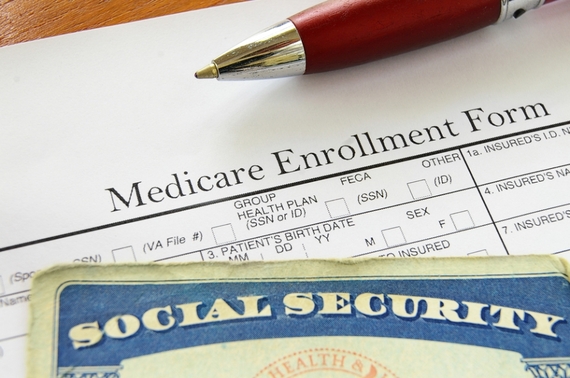It's hard to believe that Medicare is the largest insurance program for Americans 65 years and older, yet very few feel they have a good understanding of it. Research conducted by the California HealthCare Foundation, show that consumers make decisions at enrollment without actually knowing how it works or how to get the most from the benefits.
Since consumers receive information about healthcare through their employers, the investigators discovered that the older Americans coming into Medicare are not informed. They assume the government will contact and guide them or wait till Social Security approaches them. Even the ones who research the program remain confused.
How many 64-year-olds know how Medicare works?
- Only 11 percent know "all" or "most" of the information they need.
From assisted living help, aging care solutions, to healthy lifestyles, SeniorCare.com serves older adults with the full spectrum of senior-related concerns. Every month, the folks at SeniorCare.com ask leading experts to shed light on hard-hitting topics that consumers need to know about for long-term care planning. Today's spotlight features Medicare. Here's what they asked 11 experts:
What's one thing that most people would be shocked to know about Medicare?
The answers that clear the confusion:
1. Medicare does not cover most chronic care needs. The services people so often need as they get older, like nursing home care or in-home care, are generally not covered, except for very specific, acute care. There is also a lot of confusion between Medicare and Medicaid (the names are so similar!). Shannon Martin, Aging Wisely.
2. I don't believe that most people know that to be covered for skilled nursing, a person must be admitted for a three-day hospital stay. Many hospitals will classify seniors as "observation" which will exclude Medicare reimbursement for the skilled care that might follow. Shelley Webb, The Intentional Caregiver.
3. I talk to families every day who are shocked to find out that Medicare will not pay for home care help for their aging parent with the day to day activities of living. They are also shocked that it does not cover the expense of assisted living or a nursing home. Kathryn Watson, Find Houston Senior Care.
4. Medicare does not cover any assisted living care and services. I remain surprised by the number of those 55 and older, who do not yet know that assisted living remains a predominantly private pay industry, with few Medicaid dollars and zero Medicare dollars available to cover it. Christina Selder, CARR.
5. Hospital inpatient stays are often coded as "observation days" instead of as inpatient. If a Medicare Beneficiary is a patient in the hospital for three midnights, they assume that they would automatically qualify for a Medicare rehab stay when the reality is that denial (no coverage) is possible. This practice may prevent patients from qualifying for inpatient and post-hospital care under Medicare. Marla Levie, Focus on Aging.
6. That it doesn't cover the home health care most people need as they age. There is coverage for limited situations, but not "custodial" care. It's worth planning/checking into LTC insurance to have the freedom to get additional services to stay safely at home. We write about this a lot on our blog to help educate families. Alex Chamberlain, Easy Living.
7. The majority of the U.S. public thinks, "I've paid thousands into the Medicare system during my lifetime, so I'll be provided care by it, " NOT TRUE. The Federal government itself states that Medicare is not intended to provide long-term health care coverage and suggests getting additional insurance from a private carrier. Alex Dunn, Consolidated Marketing Group.
8. Medicare doesn't pay for everything. Most seniors are not entirely literate in the benefits that Medicare provides or on the limits of coverage. Healthcare and long-term care costs represent one of the largest categories of spending for retired Americans, yet a persistent 'shock' to people is that these expenses are not picked up by their Medicare coverage. Thomas West, SEIA.
9. During my time with Medicaid Advisory Group, I have found that people are continually shocked to find out that you can have Medicare and Medicaid at the same time. There is a lot of confusion surrounding these two healthcare programs, and I always encourage those with questions about the plans to seek an advisor who can help navigate through the technical language and clear up questions. Ginalisa Monterroso, The Medicaid Experts.
10. Confusion among the lay public is to be expected (eg, only one-third of adults know that Medicare does not pay for ongoing LTC), but even professionals cling to long-held beliefs. One is that a beneficiary must show improvement to qualify for medically necessary skilled services. In fact, this has never been true. Skilled care may be required -- and payable -- simply to prevent further deterioration or to preserve current capabilities, even when full recovery is not possible. Steve Forman, LTC Associates.
11. So many people are utterly shocked when they find out Medicare did not cover home care and assisted living. Most people incorrectly assume that if they have Medicare that they are covered for all of their long-term care needs. Laurie Miller, Apple Care and Companion.
Earlier on Huff/Post50:


